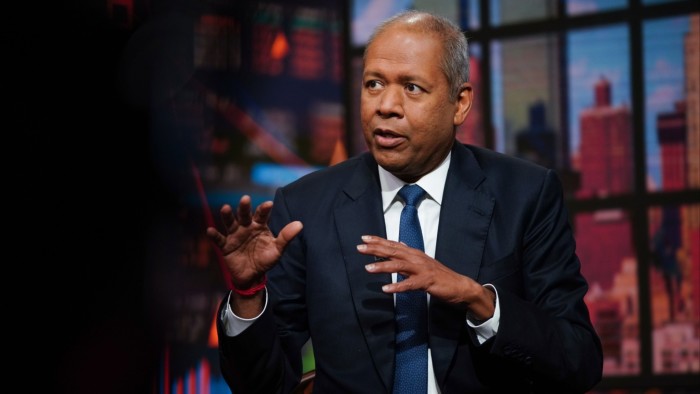Stay informed with free updates
Simply sign up to the UK banks myFT Digest — delivered directly to your inbox.
Barclays chief executive CS Venkatakrishnan has told the UK government to limit pay rises for public sector workers and refrain from hitting banks with tax increases, as chancellor Rachel Reeves weighs options to plug a fiscal hole.
“We need to curb expenditure at the government level,” he told the Financial Times, adding that ministers needed to bear down on rising “public sector” wages. “We need to find a way to curb wage inflation,” he said, stressing that it was an issue across the UK economy.
Venkatakrishnan also warned against raising taxes on British banks: “UK banks are taxed more than banks anywhere else, how much more are you going to squeeze this?”
Although overall UK wage growth has slowed in recent months, it is still running at an annual rate of 5.7 per cent in the public sector, excluding bonuses, well above the private sector average of 4.8 per cent. Unions are still demanding further increases to make up for years of pay erosion.
The Barclays chief’s comments on inflation echo those made by Reeves, who told ministers in a cabinet meeting on Tuesday that they had to resist wage demands from the public sector and support her fiscal policies.
The chancellor is under significant pressure to reduce spending and raise taxes as the Treasury prepares for a November Budget in which Reeves will have to address a hole in her fiscal plans.
Bankers have expressed concerns that the industry’s solid profits, thanks to higher interest rates, could make it a target for tax increases.
They have argued that raising taxes would stifle growth and handicap UK lenders just as they have got back on their feet following government bailouts in the 2008 financial crisis.
Shares in leading UK banks fell in August over fears that Reeves could increase the existing 3 per cent surcharge to bank profits or the current levy on bank balance sheets.
Barclays shares are up almost 75 per cent in the past year, mirroring a sector-wide rally, despite being buffeted by reports at the end of last month that the government could target banks in this year’s Budget.
“I hope it’s an extremely low probability,” said Venkatakrishnan on the prospect that Reeves could increase taxes on banks.
The Barclays boss said UK banks had in effect a total tax rate of about 46 per cent in 2024, versus the 28 per cent lenders pay in New York. Banks in the EU are taxed anywhere between 29 and 39 per cent, he added.
“London is a great global financial centre and the path to growth does not lie to taxing the sector even more,” he said.
Barclays has disclosed that it made close to £5.7bn of pre-tax profits last year from its operations in the UK, where it paid almost £1.4bn of total tax. This included £198mn in corporation tax and £154mn for the bank levy.
Venkatakrishnan has been supportive of the UK’s Labour government, which came to power in July 2024, even as other business leaders have begun to question whether there is substance behind its growth agenda.
“I have had the view from day one that this is a government that is pro business and particularly pro the financial industry,” he said.
Banks have welcomed certain regulatory reforms, including a review of the Financial Conduct Authority’s rule book and an overhaul of the Financial Ombudsman Service.
The industry is also optimistic that the Bank of England will lean towards the US on bank capital requirements after it delayed the start of the new rules earlier this year to see how the Trump administration implemented them.
But Venkatakrishnan has spoken out against one of Reeves’ flagship proposals — to reform ringfencing rules that force UK banks to separate their retail and riskier investment banking operations.
“What I hope and expect is that they will take this time to think through the difficult choices they have to make,” said Venkatakrishnan. “No Budget keeps everyone happy, but the object of it is to foster growth in the country.”
Additional reporting by Delphine Strauss
This story has been amended to clarify the bank surcharge rate.
Read the full article here
